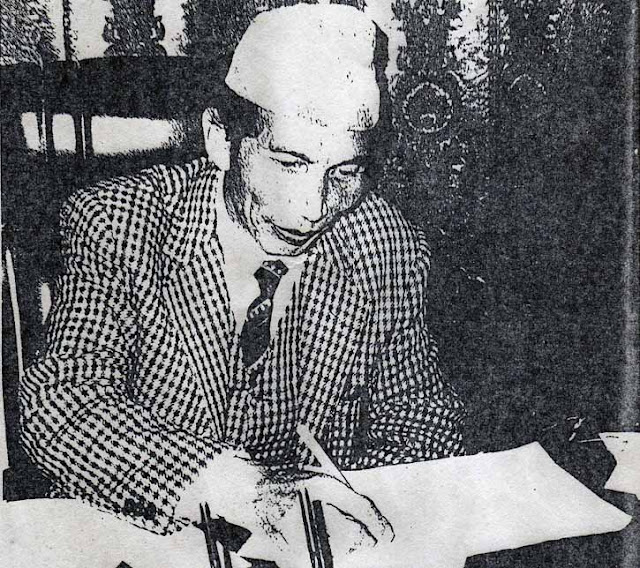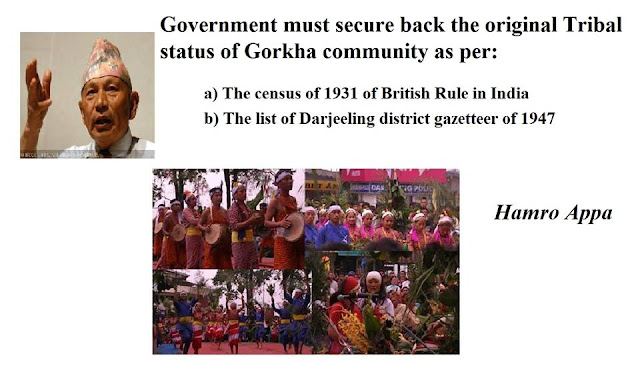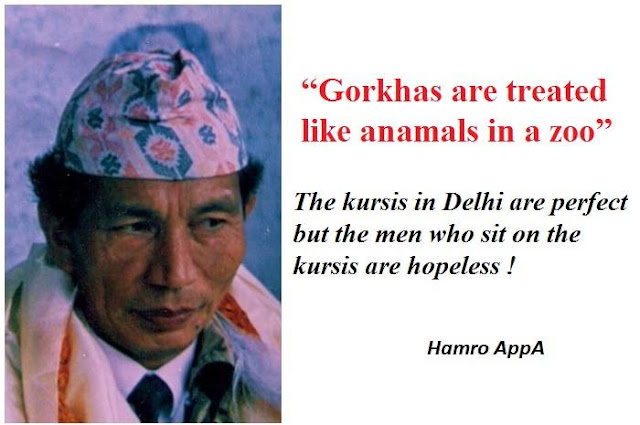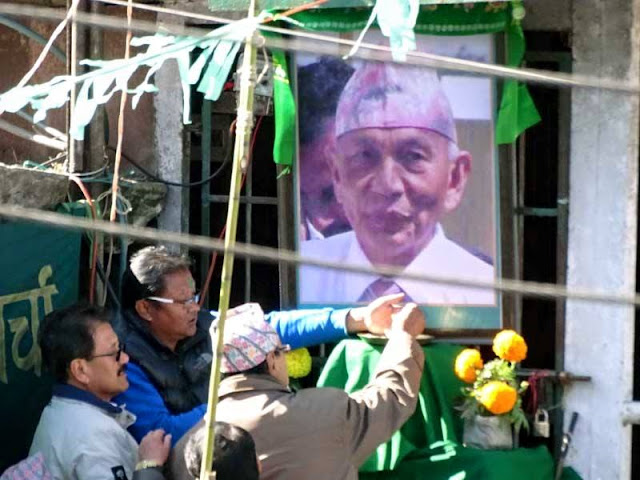Illustrated weekly of India, Bombay, June 28,1987
Why didn’t you let me tape you?
No, I got into a lot of trouble after your last report. You quoted me on very sensitive issues and declared that the extract were from a taped conversation. I could note even deny it as you had actually used a tape recorder.
Which statements of you created trouble?
I gave you name of R A W and SIB officers with whom I interacted. You published their names why? Are you working for some foreign intelligence agency? The home ministry was very upset by my statements.
I told you about Inder Jit of INFA. You published that too. I cannot understand your motives. But I have made a new rule. I will not allow any reporter to tape my interviews. I don’t want to get into trouble.
Are you aware that West Bengal Chief Minister Jyoti Basu and Union Home Minister Buta Singh met on June 16 in Calcutta and categorically ruled out the creation of Gorkhaland ?
The WB state government and the Union home ministry have entered into a conspiracy to humiliate all Gorkhas. I have received this information from secret source.
Rajiv Gandhi has been imprisoned in a dark room. He is completely in the dark. Buta singh and Jyoti Basu are acting against the Prime Minister’s wishes. Is it not true that Buta Singh has agreed to send more para-military forces to suppress our genuine movement?
Yes, Jyoti Basu asked for reinforcements and Buta Singh quickly agreed, Six companies more, to be precise.
I cannot understand why Buta Singh came to Calcutta. Is Jyoti Basu the Prime Minister of Bengal that Union home minister had to call on him? Jyoti Basu is a mere chief Minister. Buta Singh should have summoned him to Delhi. By going to Calcutta, he has put down himself and the office he holds.
Were you expecting Buta Singh to make a dramatic announcement after the meeting with Jyoti Basu ?
Not Dramatic announcement. If he had announce the date for the delegation’s meeting with Rajiv Gandhi. I would have withdrawn the 13day bandh from June 20. Now the bandh is on.
I spoke to dozens of ordinary Nepali people, They are worried. Especially daily wage earners, who might starve for 13 days. The poor people will be crippled economically it will be a big economic loss ?
Why do you call it economic loss? call it sacrifice. Forget income and earnings, people are ready to sacrifice their lives for the creation of Gorkhaland. A separate state is a must. The Gorkhas are treated like animals in a zoo. You speak of 13 days, My frustrated brothers and sisters are exhorting me to organize a 13 year bandh to ensure the creation of Gorkhaland.
The central government has ruled out the possibility of separate state. Apart from Buta Singh and P Chidambaram, Union Home Secretary C G Somaiah stated at Simla on June 8 that Centre has categorically informed you that there is no question of a separate Gorkha state within India ?
There are chaiwallas, panwallas, rickshawallas, and mochis. They may say anything. Do your expect me to pay attention to their words? I want to discuss the genuine grievances of the Gorkhas with Rajiv Gandhi.
But Rajiv Gandhi too has said that there will be no Gorkhaland.
The WB police and the Centre’s para-militar forces have never treated Gorkhas as Indians. We have received the treatment reserved for enemies of India. If the police commits excesses. I cannot guarantee a peaceful band.
You met Buta Singh in Delhi on may 15 was the meeting fruitful?
I had to wait for 15 days to get 15 minutes of the Home Minister’s valuable time. This is how they treat the representative of the people. Buta Singh promised to arrange a meeting with Rajiv Gandhi. But he has not kept his word.
The kursis in Delhi are perfect but the men who sit on the kursis are hopeless.
Buta Singh served us tea, barfi and kaju. This is the politics of Delhi. And the fourth ingredient of Delhi’s politics is the press release. But my meeting was not covered by Doordarshan. Why ?
Perhaps, because they didn’t want to give you legitimacy.
I am very confused. The Gorkhas are simple people. But nobody should take advantage of their simplicity. There are thousands of ex-servicemen living in Darjeeling, what will happen if they get arms? Do you think that the CRP and BSF will be able to hold us? Nobody should at least blame me if the situation goes out of control.
Are your receiving financial assistance from China?
No. we are patriots. We are funded by the people. There is no dearth of funds. We collected Rs 5.70 lakhs in May to finance the delegation to Delhi. Each person paid only Rs.10
Where is the unspent money?
I am not accountable to the press. I am accountable only to my people.
You are still confident of getting Gorkhaland ?
Very much. Surely by the end of 1987 by hook or by crook. After the 13 day bandh, I will let the people steer the course of the movement. And the people are becoming increasingly aggressive. The state cannot give us anything. And the center has flirted with us for too long.
HAMRO APPA















%2Bfounder%2BSubash%2BGhisingh.jpg)










